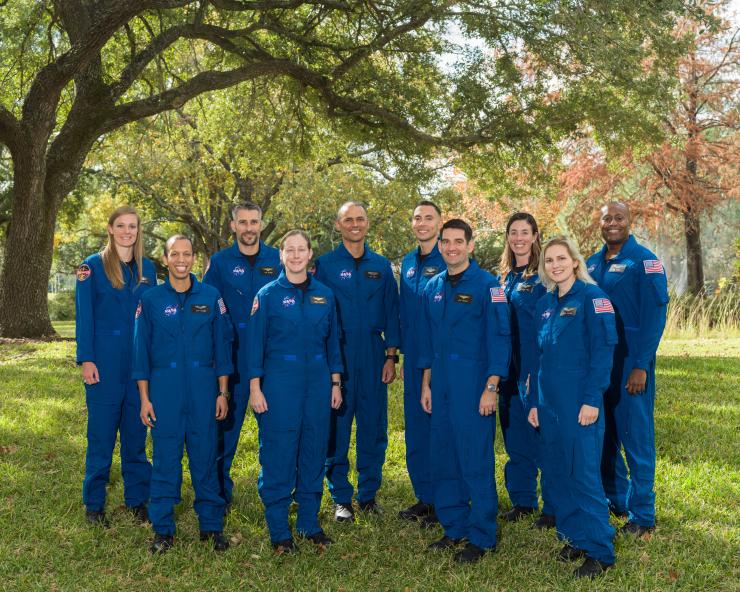TRISH releases a partnership funding opportunity to increase diversity in space research
As humanity plans to return to the moon after 50 years and more private citizens are making trips to space, the Translational Research Institute for Space Health (TRISH) at Baylor College of Medicine is committed to ensuring that diversity, equity, inclusion and accessibility (DEIA) are represented in its research programs to support these endeavors. This is particularly relevant as planned Artemis missions will include a more diverse set of explorers than the Apollo program.
Today TRISH is announcing an innovative funding opportunity aiming to increase engagement from underrepresented groups in the field of space health research. TRISH, a NASA-funded institute, supports research and development of health protections for humans exploring deep space.
The 2022 Diversity Partnership Solicitation calls for proposals from potential partners to innovate and implement strategies to target and increase engagement from diverse populations of researchers and trainees. TRISH will select and fund the work of one or more partner organizations (companies, nonprofits or academic entities) capable of supporting the institute’s DEIA goals.
As a NASA-funded institute, TRISH is fully committed to DEIA in its activities, growing research community, and within the research itself. Diversity in the space health research community is key to obtain transformational and impactful advances and has been adopted as one of TRISH’s strategic goals. As the pace of human space exploration increases, the next generation of space life scientists, astronauts, physicians and engineers should reflect the diversity of humanity.
“Space belongs to all of us, and TRISH is striving to increase diversity, equity and inclusion in space health research,” said TRISH diversity program co-lead, Jordan Lewis. “Humanity’s next wave of space explorers will be more diverse than ever before. Space health research needs the insights and talents that new-to-the-field and diverse researchers bring. Now is the time to make space for everybody.”
The institute recently reported initial findings from a diversity survey, collecting data on the engagement and experience of diverse scientists. Insights and recommendations from the survey led to the decision to solicit for partner organizations. The data revealed gaps and opportunities for TRISH to make an impact.
With the help of a Diversity Advisory Board, comprised of five scientists with varying educational backgrounds, the institute is enthusiastic about this new undertaking. “I appreciate the concept of partnerships because it gives us leverage,” said Diversity Advisory Board Chair, Dr. Asha S. Collins. “Partnerships allow us to achieve our goals of developing a diverse pipeline of space health researchers by working with and through organizations who are already focused on this work and successful. Leveraging these groups that are already successful in this area can give us more confidence that we’ll empower new-to-space health researchers to also be successful.”
“TRISH is taking a non-traditional approach to help mitigate some of the power and perspective imbalance present in the sciences,” said Dr. Joseph Bonivel Jr. Bonivel recently joined the TRISH Diversity Advisory Board, bringing subject matter expertise from his experience with the United States Department of Defense, the Atlantic Council and his own consulting firm, Engineering Innovations LLC. “We are seeking real partners in this work, with creative ideas who are ready to make impact.”
The solicitation is available online here. Full proposals submitted through GRID are due March 16, 2022, by 5 p.m. EST. Selections are estimated to be announced in May 2022. TRISH is hosting a webinar on February 18 at 2 p.m. EST to answer questions from potential partner organizations. Register for the webinar here.
TRISH encourages diverse candidates and underrepresented groups to participate in this research solicitation. All categories of United States institutions and companies are eligible to submit proposals. Please see the solicitation for more information on eligibility.
The institute is funded through a cooperative agreement with NASA to Baylor College of Medicine and includes consortium partners Caltech and MIT. Learn more about TRISH by signing up for its monthly newsletter and following the Institute on social media @BCMSpaceHealth.












 Credit
Credit